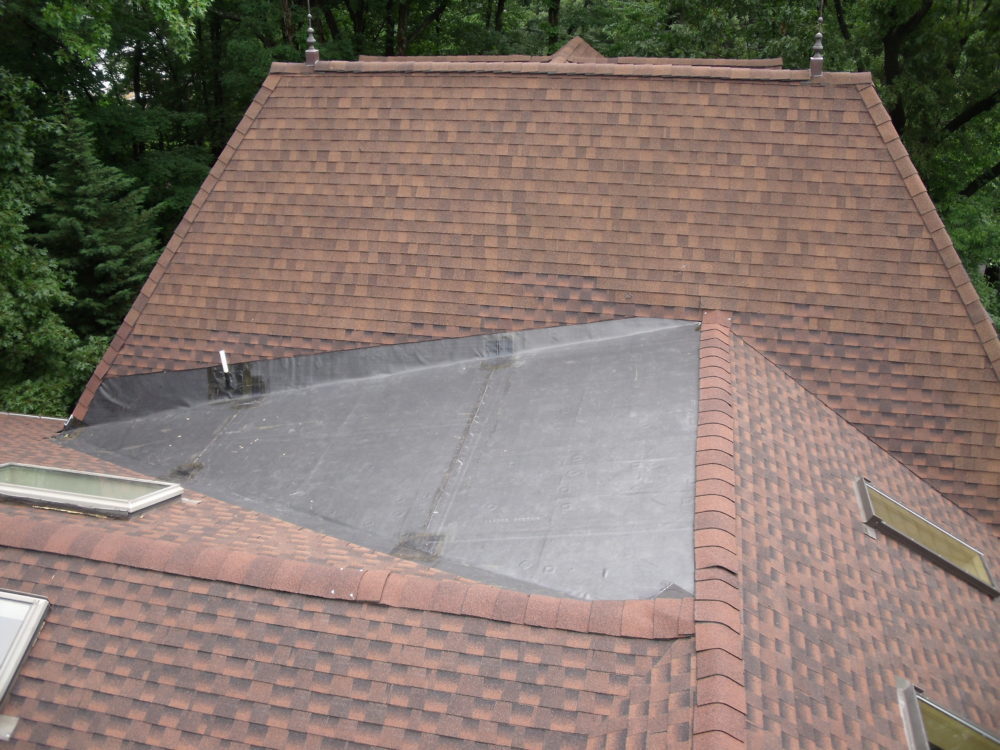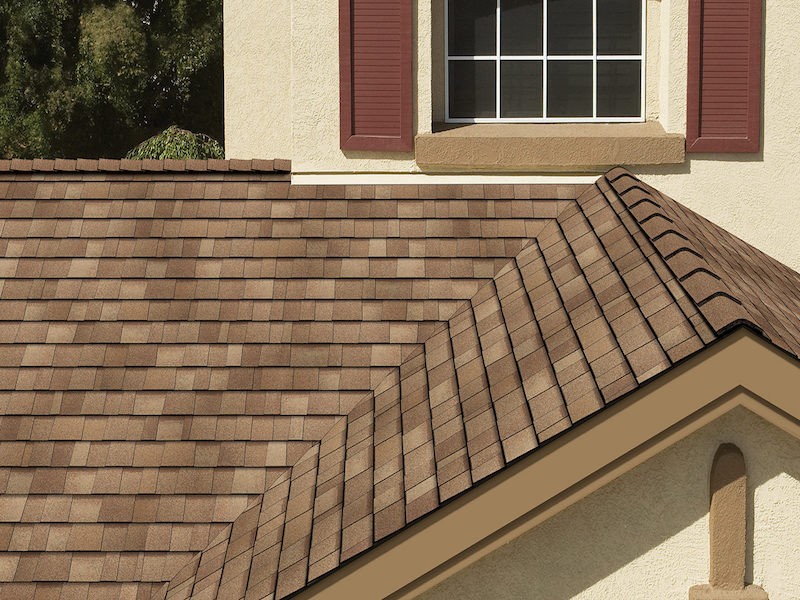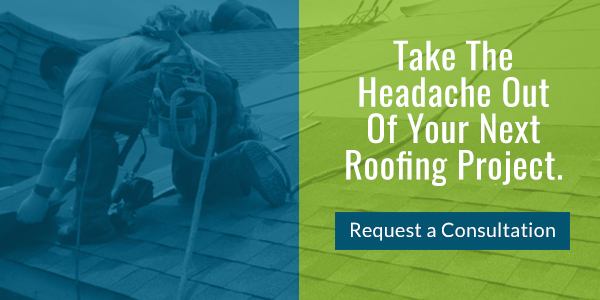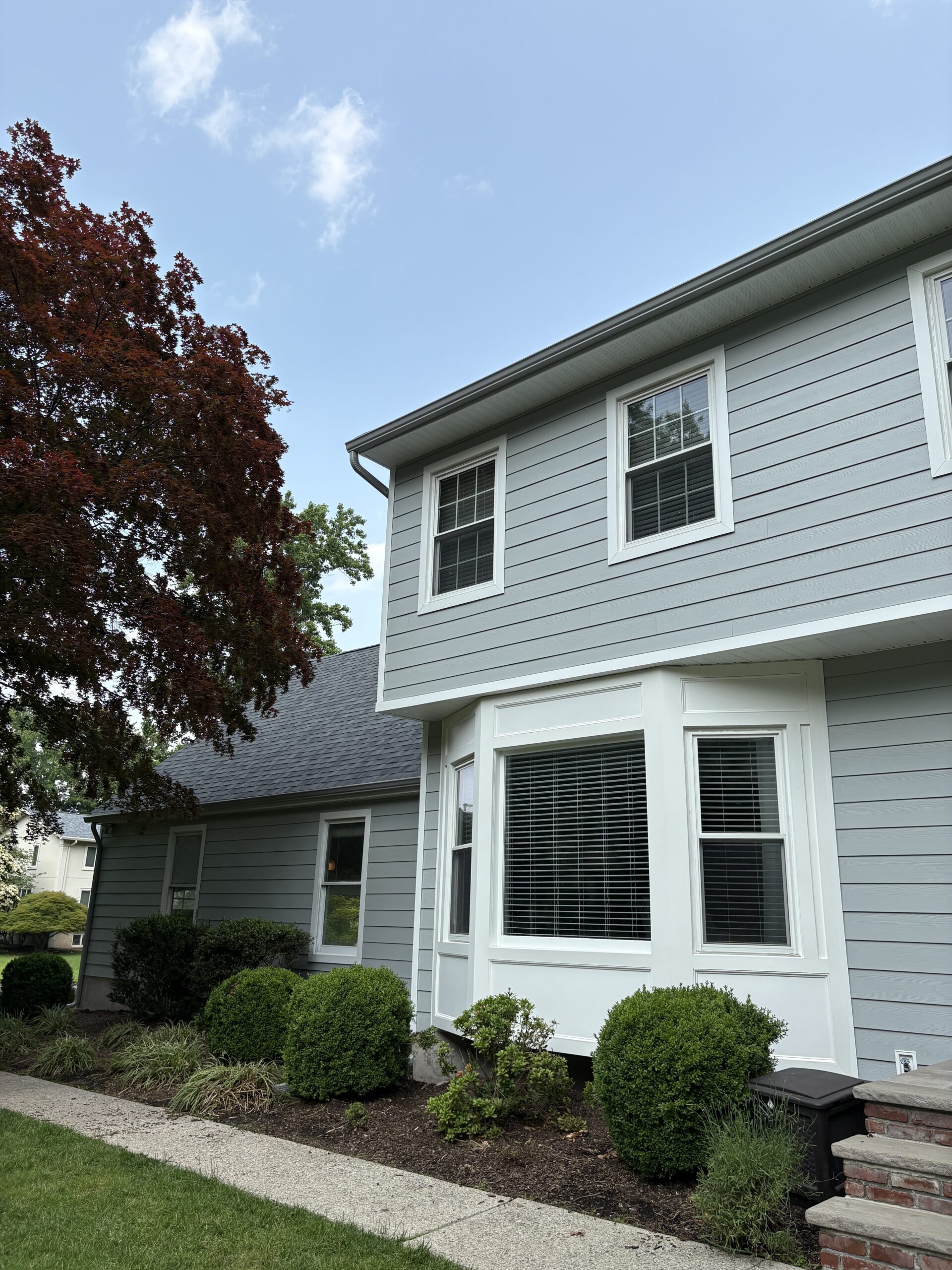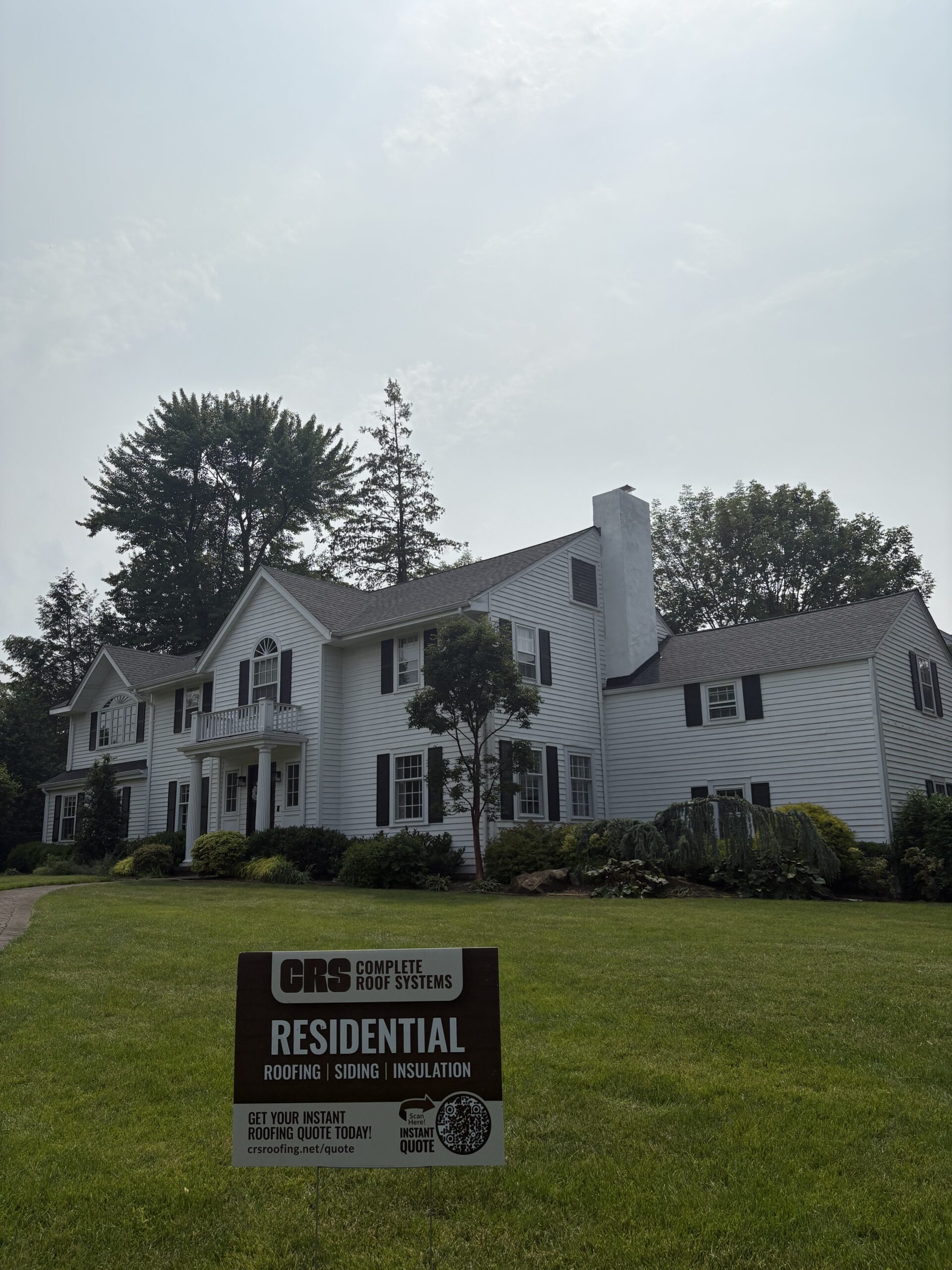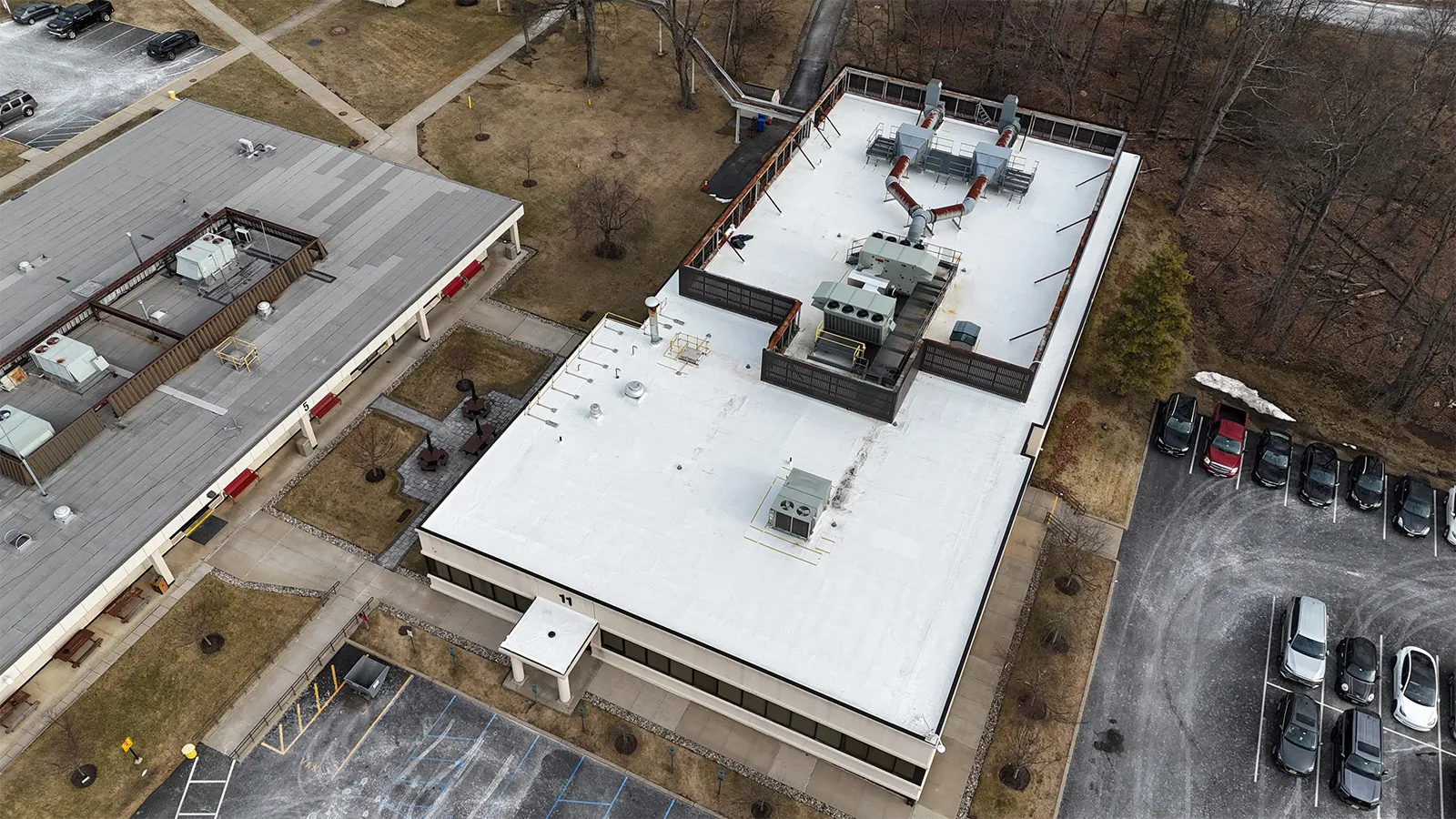When you’re thinking of replacing your roof, you may be surprised to find that there are several types of shingles, including architectural, 3-tab, and more, each with its benefits. Since a roof will last for decades, the type of shingles you choose is an important decision. Read on to learn more about the various types of shingles and why many people select architectural shingles for their roof replacement.
What Exactly are Architectural Shingles?
When researching roofing options, many NJ homeowners find themselves confused by the variety of options available. With terms like 3-tab, architectural, laminated, and compositional, it’s important to understand the differences in the types of shingles available to make the best decision when it comes to your roof.
Asphalt is the primary raw material in all these roofing products. It is a cost-effective option that is tough, flexible and waterproof. The terms “architectural,” “laminated,” and “compositional” all refer to the same type of asphalt shingle. These shingles feature a tough fiberglass mat sandwiched between two asphalt layers. Mineral granules are embedded in the top layer to make these impact-resistant shingles less likely to be damaged by hail and punishing ultraviolet rays.
Advantages and Disadvantages of Different Shingles
Roofing manufacturers typically offer two leading shingle types: 3-tab and architectural. Let’s break down the differences and pros and cons of each.
3-tab shingles
Traditional 3-tab shingles feature a fiberglass mat embedded in asphalt and covered by mineral granules. They get their name from the three “tabs” at the top of the shingle, separated by quarter-inch grooves. While 3-tab shingles sometimes cost slightly less than the more popular architectural shingles, they are trickier to install as they are more difficult to align and are more flimsy, resulting in higher labor costs.
Since modern 3-tab shingles are thinner than architectural shingles, they are often less impact-resistant and less durable. This is reflected in the shorter warranty coverage available for these shingles.
For example, although GAF’s Golden Pledge warranty includes 100-percent coverage on architectural shingles for 50 years, it offers the same coverage on 3-tab shingles for only 20 years. With the weather extremes that homes in New Jersey experience and their reduced durability, 3-tab shingles are generally not recommended.
Architectural shingles
Today, most NJ roof replacements are completed with architectural shingles, for good reason. They are very durable, even when subjected to the extremes of New Jersey summers and winters. When you consider the surface temperature of a roof can approach 170 degrees F on a summer day, or temperatures well below freezing in the winter, it’s clear why durability is a vital factor to consider.
Thicker, architectural shingles come with heavy-duty nail strips and high-quality adhesives to make them exceptionally wind-resistant and impact-resistant. For example, shingles with Owens Corning’s SureNail technology come with high wind ratings. GAF also offers premium architectural shingles with high wind ratings to stand up to all that Mother Nature can throw at them.
Organic shingles
Organic shingles are no longer manufactured by the major roofing providers, as better, more durable materials are available. These shingles featured a mat composed of cellulose rather than fiberglass. The most significant disadvantage of organic shingles was that the cellulose mat could absorb water as the asphalt broke down, making the shingles susceptible to rot, mildew, and mold. Additionally, defective organic shingles would get very distorted, allowing wind and water to infiltrate the roofing system easily.
Reasons to Choose Architectural Shingles
Now that we’ve outlined some of the major differences in the types of shingles, we’ll cover additional reasons architectural shingles are the choice for reputable roofing contractors. Some of these key factors include lower lifecycle costs and energy efficiency.
Wind resistance
As we discussed above, architectural shingles have strong wind resistance. Premium architectural shingles often feature 130 mph wind ratings, while 3-tab shingles usually have only a 60 mph wind rating. Although a 60 mph rating may be enough in general thunderstorms and snowstorms, it is undoubtedly a source of concern when hurricanes and the worst nor’easters strike, especially with the growing strengths of storms in the Northeast. Consider what FEMA says about the impact of high winds on shingles.
*Photo courtesy of Owens Corning
Energy-efficiency
With energy costs continuing to rise, improving your home’s energy efficiency can help reduce some of the costs associated with cooling your home. Some architectural shingles come with special, highly reflective granules that reduce the roof’s temperature by reflecting more UV rays back into the atmosphere. This can reduce demands on a cooling system during the summer months.
Reduced temperatures may also increase the service life of shingles and underlayment, extending the roof’s overall life. Consider shingles with these reflective granules for added energy efficiency, like the Duration Premium Cool from Owens Corning and the Timberline Cool Series from GAF.
Damage resistance
In general, thicker architectural shingles are more impact-resistant than 3-tab shingles. This protects from the impact of objects like falling branches and large hail. Impact-resistant shingles can also reduce the chance of damage to the underlayment when debris falls on the roof.
Lifecycle cost
Considering the significantly longer lifespan of an architectural shingle roof, its cost per year is often less than that of a 3-tab roof. Reduced maintenance costs can also make architectural shingles a better value in the long term.
When to Use 3-Tab Shingles
Given the numerous advantages of architectural shingles, why would an NJ homeowner choose traditional 3-tab shingles? They are mainly useful for repairing an existing 3-tab shingle roof. Repairs to such a roof must be completed with 3-tab shingles because thicker architectural shingles are generally incompatible with the thinner 3-tab shingles.
Also, there may be an extreme case where the load-bearing capacity of an older roof design is not enough to support the heavier architectural shingles. In those cases, thinner, lighter 3-tab shingles are an option that doesn’t require extensive work to reinforce the existing roofing system.
Consult With a Certified Contractor
Whenever you make a major decision about your home, it is helpful to get an expert opinion. Therefore, when making important decisions about architectural versus other shingles, it’s ideal to get guidance from a factory-certified roofing contractor. “Factory-certified” means that a roofing manufacturer has established that the contractor is qualified to install its products to their specifications.
That confidence is expressed in higher quality manufacturer warranties typically offered through a certified contractor. A recommendation from a factory-certified contractor comes with the expert knowledge accumulated through years of assessing the unique needs of different New Jersey roofs.
Contact Us for Prompt Assistance
Since 1977, CRS has provided NJ homeowners with all the roofing services they require, from periodic inspections and routine maintenance, to complete roof replacements. When looking at impact-resistant architectural shingles versus other shingles, count on the pros at CRS to help you assess your options.
We know that a residential roof is a significant investment, and homeowners want to feel confident when making a decision. We’d welcome the opportunity to share our roofing expertise with you. Please contact us to schedule a no-obligation consultation.

